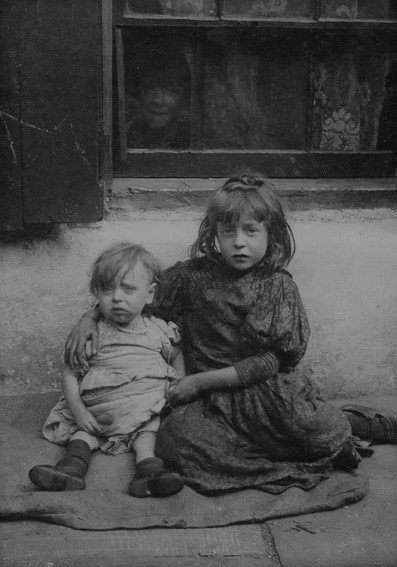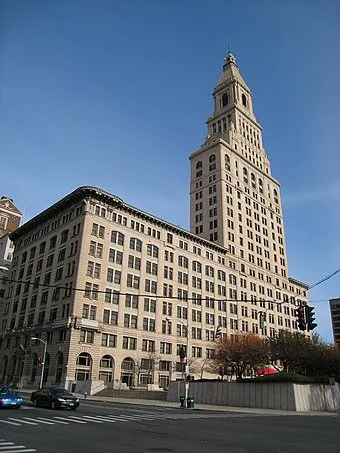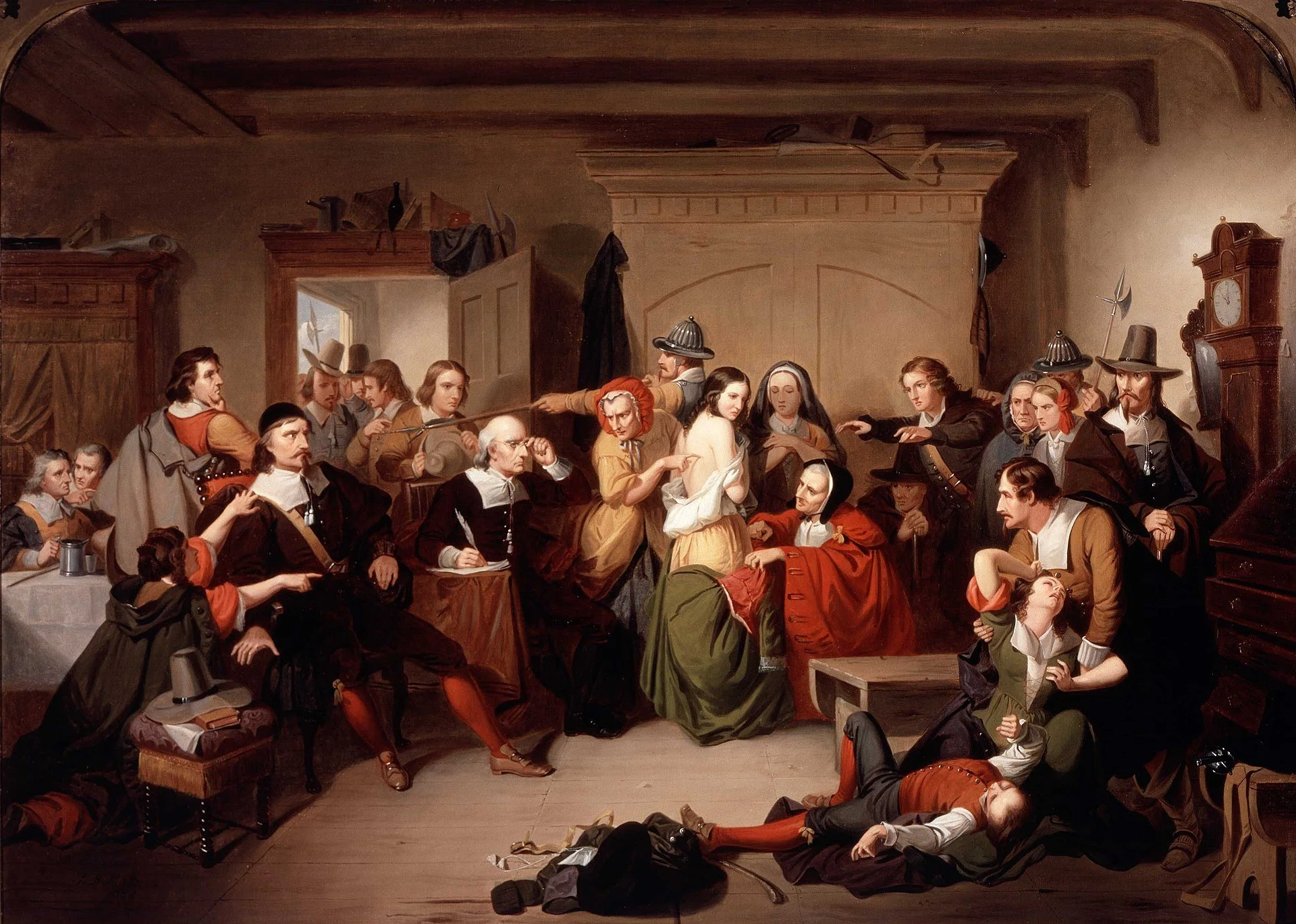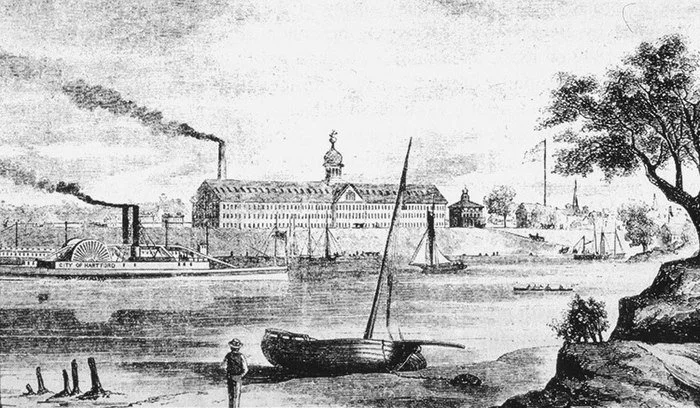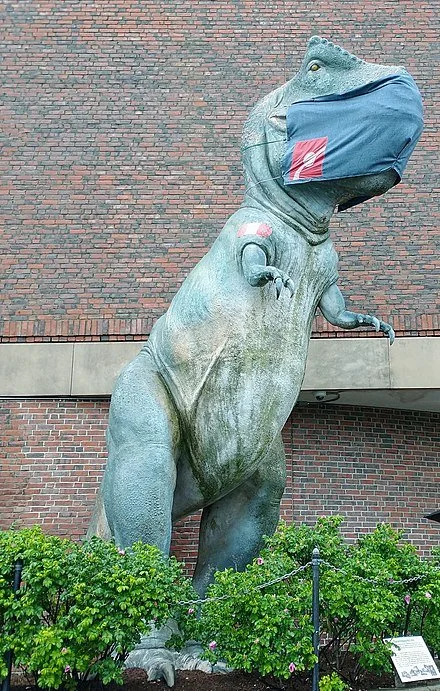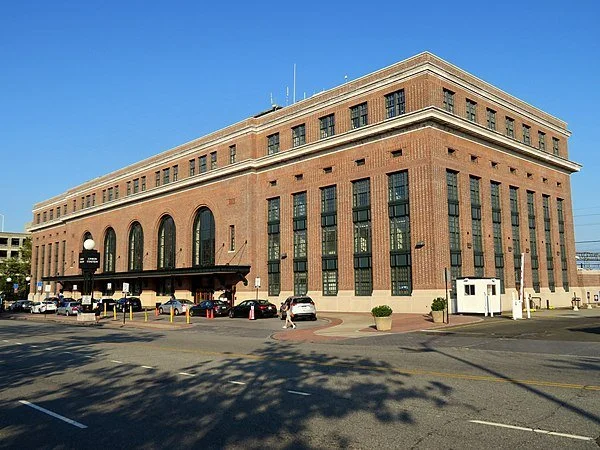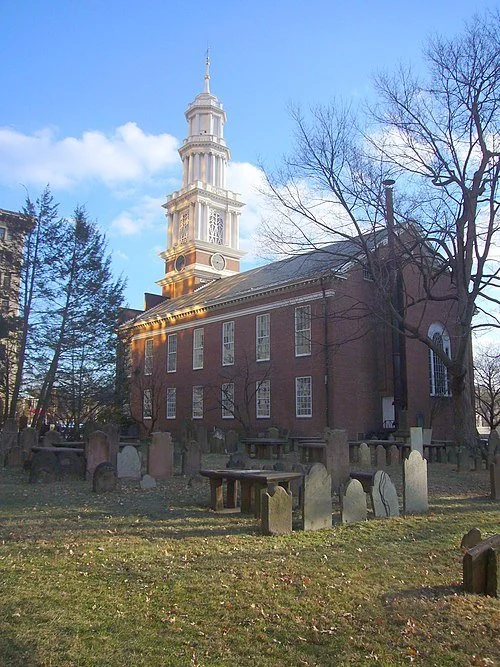
Chris Powell: Hartford’s new archbishop eyes the poverty factory
Archbishop Christopher J. Coyne
Cathedral of Saint Joseph in Hartford
— Photo by Sage Ross
MANCHESTER, Conn.
When he was installed two weeks ago, Hartford’s new Catholic archbishop, Christopher J. Coyne, said he has several big objectives, though he conceded that with two of them he may be dreaming.
Coyne’s most practical objective is simply restoring the local church and regaining parishioners. "In recent years," Coyne said, "we have given folks no shortage of causes to walk away from the faith -- parish closings, the abuse scandal and associated betrayals by leaders who should have known and done better, and pastoral approaches that at times have done more to judge people than serve them."
The archbishop can’t undo those scandals but he can be candid about them and make sure that the wrath of God quickly falls -- publicly -- on any agents of the archdiocese who betray their trust.
As for unhappy judgments on people, archbishops are stuck with church doctrines that many think contradict modernity, such as the refusal to ordain women or sanction same-sex relationships. Given the conservative bent of the places where the church is growing, those doctrines are unlikely to be changed soon.
Not that modernity is always right. Indeed, the basic Catholic morality of old is less primitive than today’s morality of anything goes. It wasn’t entirely because of religious doctrine, but Connecticut was better before state government started pushing gambling and marijuana on the public and pretending that men can be women and vice-versa.
Sad as Catholic parish closings are, ripping roots out of the community and leaving empty buildings as stark monuments to a vanished era, the decline in church membership requires closings and it has not been caused primarily by the scandals. While spirituality is not dead in the developed world, religious dogma is losing adherents fast. Perceptions of the divine today are much broader.
Fortunately the church has much to offer beyond dogma, starting with the Sermon on the Mount, and evangelical and non-denominational churches are growing. Catholic leaders might study their appeal.
In his inaugural remarks, the new archbishop noted that parish and school closings have left the church with many buildings that might be converted to inexpensive housing, of which Connecticut is desperately short. Of course this is easier said than done. While nearly everyone purports to want the state to have more housing, nearly everyone wants it built somewhere else. The fear of the underclass is real and often justified, as indicated by violent crime and terrible school performance in the cities.
The new archbishop has an idea about his new city, Hartford, a poverty factory where two high school students were shot to death the other day. His dreamiest objective is to restore Catholic schools in the city -- there are none left -- and make them tuition-free.
The excellence of Catholic schools is generally acknowledged. The schools have behavioral discipline and academic standards, which now are virtually prohibited in public schools. Unlike public schools, church schools can choose their students, but they use this freedom not to exclude but to pursue the most motivated students and parents.
Thus church schools can offer students an escape from the demoralization of city life, and with their better environment they can retain good staff while paying less than public schools.
Regional public "magnet" schools offer some escape as well but are still somewhat impaired in discipline and academic standards. They also impose more transportation burdens on students and parents than neighborhood schools.
In any case, as indicated by the litigation of the past quarter century over school segregation in Hartford, the city and other cities in Connecticut can use much more school choice. The return of Catholic schools could help provide it, but avoiding tuition would require money from somewhere.
A scholarship program from state government might provide it and educate students better and less expensively than government’s own system, but the teacher unions would never consent, and they run government in Connecticut. They have no interest in improving student performance, reducing poverty, and saving money. Only dreamers care about such stuff. Good for the new archbishop for being one.]
Chris Powell has written about Connecticut government and politics for many years (CPowell@cox.net).
Chris Powell: In Connecticut and elsewhere, ‘dollar stores’ reflect poverty
— Photo by Michael Rivera
MANCHESTER, Conn
Like the rest of the country, Connecticut is seeing an explosion of "dollar stores,’’ such as Dollar General, Family Dollar and Dollar Tree, discount retailers that are causing alarm in some quarters because, while they sell food and consumer goods, they don't offer fresh meat, fruit, and vegetables and they are feared to be driving traditional food markets out of business. As a result, some municipalities around the country are legislating to restrict or even prohibit "dollar stores’’.
Now, The Hartford Courant reports, a University of Connecticut professor of agricultural and resource economics, Rigoberto A. Lopez, has published a study supporting this resentment, linking the growth of "dollar stores’’ to unhealthy diets in "food deserts" and the failure of regular grocery stores.
But "dollar stores’’ aren't doing anything illegal or immoral. They wouldn't be successful if they weren't providing goods that people want and at low prices. Nobody seems to be accusing the "dollar stores’’ of using unfair trade practices or violating anti-trust law. If "dollar stores’’ are doing better than traditional grocery stores, competition is what a free-market economy is about. People can choose where to shop.
Critics of "dollar stores’’ don't like that. They seem to think that they should be allowed to decide not just where people shop but also what they eat.
Of course there is a problem. "Food deserts" are real but retailers aren't to blame for them. Poverty is, and the expansion of "dollar stores’’ is largely a measure of worsening poverty for many in the country as a whole as well as in Connecticut.
Too many people don't eat enough fresh food quite apart from their ability to pay for it, and combine bad eating habits with poverty and the problem is worse.
But poor households qualify not just for government housing, energy and income subsidies but also for federal food subsidies -- Food Stamps are now the Supplemental Nutrition Assistance Program -- and if they live responsibly they can afford fresh food if they want it, and if they can travel outside their "food deserts."
That's the other part of the problem. Like other retailers, full-service supermarkets won't make as much money by locating in poor neighborhoods as they will make in middle-class and wealthy neighborhoods. By avoiding poor neighborhoods, any retailer will suffer less theft as well.
So Hartford's city government is considering opening its own supermarket. Whether city government has the competence to run anything well is always a fair question, since the poverty of so many city residents is inevitably reflected in city government itself. But there probably will be "food deserts" in cities as long as their demographics are so poor. A city government supermarket in Hartford won't solve the problem.
Indeed, a good measure of the long decline of Hartford from what was considered the country's most prosperous city a little more than a century ago to a struggling one is the decline in the number of chain-owned supermarkets in the city -- from 13 in 1968 to only one or two today.
Because of this poverty there isn't much retailing left in Hartford generally. For years city residents have done much if not most of their shopping in West Hartford and Manchester. West Hartford's downtown long has been far more vibrant than Hartford's, because that is where the middle and upper classes -- the people who have money to spend, people who many years ago might have lived in Hartford -- have moved.
Blaming "dollar stores” for poor nutrition among the poor is just an excuse to ignore the causes of poverty. More than a study of the impact of those stores, Connecticut could use a study of what pushed Hartford and its other cities from prosperity to privation -- such as fathers who don't father, mothers who don't parent well on their own, schools that don't educate, policies that produce dependence instead of self-sufficiency, and government that takes better care of itself than its constituents.
The decline was underway long before Ronald Reagan, Donald Trump or either of the Bushes became president. But even as the "dollar stores’’ spread across Connecticut, no one in authority seems to have any curiosity about what happened.
Chris Powell has written about Connecticut government and politics for many years (CPowell@cox.net).
Downtown Hartford in 1914, during “The Insurance Capital’s’’ heyday.
Chris Powell: Government underwrites lethal child-neglect culture
MANCHESTER, Conn.
Why did a 2-year-old boy fall to his death through a window of his third-floor apartment in Hartford in July?
A long report by the Connecticut Mirror the other day attempted to answer that question. It attributed the boy's death to "generational poverty" and, more so, to government's failure to make sure that the boy's mother had everything she needed to raise her five children, all under 13, on her own, since the children's father or fathers were not providers.
If only, the report lamented, government had given the woman free day care and longer classes about parenting and had applied current housing code standards to the family's apartment building, which was exempt because of its age.
Well, maybe.
But the report did not address the most compelling issue as it strove to acquit the woman of the manslaughter and risk-of-injury charges she faces for having left her children unattended in squalor as she went to work as a part-time taxi driver, purportedly expecting the 2-year-old's father to arrive soon to watch the children. It could not have been surprising that he was fatally late.
That is, how does a woman of limited education and job skills who can't support herself come to have five children but no husband or other committed helpmate in the state that gave rise to the constitutional right to contraception and sometimes seems to consider abortion the highest social good?
One pregnancy may be an accident. Five are not. Five children born to someone unprepared to support them is irresponsibility, though political correctness forbids any such acknowledgment.
xxx
But the Mirror report inadvertently hinted at an explanation.
First, the report said, the woman always wanted to be a mother. Of course, many people want to be parents, but some still know that parenthood imposes obligations of preparedness.
Second, and perhaps crucially, the report elaborated: "When she was in high school, she moved in with an older man. Her family sent her to Connecticut after graduation to get her away from him, but she had little beyond the clothes on her back when she moved. She lived in a homeless shelter for several months and rang the Salvation Army bell at Christmas to earn money to pay the security deposit for her first apartment. When she got pregnant with her first daughter, she qualified for a housing choice voucher. ...
“She paid $469 per month for the apartment, and her housing choice voucher covered the rest of the $1,550 rent.”
Of course in addition to that heavily subsidized housing there would be free medical insurance and food and other benefits. So who needs to be prepared, competent, self-supporting, and responsible and have a committed spouse when government will lavish money on irresponsibility that holds children hostage?
And so the disastrous cycle began again -- four more children without a spouse, more dependence on government, more child neglect, mental illness for one of the children, and the horrible death of the 2-year-old boy, following constant problems that prompted frequent visits by social workers from the state Department of Children and Families, on which Connecticut spends more than $800 million each year to minister to thousands of similarly dysfunctional households with similarly neglected children, without ever establishing as a matter of policy that this is no way to live since it imposes a catastrophic burden on both the children held hostage and society.
xxx
Few children monitored by DCF fall out of third-story windows, but some die after ingesting narcotics left within their reach, others suffer serious injuries at the hands of their reckless custodians, and many come to school far behind in social development or with learning disabilities and behavioral problems. The $800 million spent annually by DCF is only part of the cost of this lifestyle, a cost that extends to schools, courts, and prisons.
That is, what is called the child-protection system pays for and thus rationalizes, institutionalizes, and encourages child neglect.
While the poor may be demoralized, like everyone else they respond to financial incentives. They are not stupid. But government can be, and journalism doesn't always make it smarter.
Chris Powell has written about Connecticut government and politics for many years (CPowell@cox.net).
Chris Powell: City-operated supermarket in Hartford? UConn seems to condone rape
If only….
Hartford in 1914, during “The Insurance Capital of the World’s’’ economic heyday
MANCHESTER, Conn.
Hartford’s long descent from a prosperous hub of industry and finance (especially insurance) to a repository of poverty can be measured in several ways, but an especially telling one was publicized the other day as the City Council decided to hire a consultant to consider having city government operate a supermarket in the city, for profit or even at a loss.
Hartford is said to have become a "food desert," a place whose residents have to travel far to obtain fresh and nutritious food for preparation at home and so have to rely on less healthy items from neighborhood convenience stores. According to The Hartford Courant’s report on the supermarket initiative, in 1968 the city had 13 chain supermarkets but has only one today.
The idea of city government supermarkets is also being pursued in Chicago, where crime is exploding and destroying the city.
Like other businesses, supermarkets won’t operate where they can’t make money safely. They won’t operate where people don’t want or can’t afford fresh and nutritious food and where crime is common.
If, as the City Council’s initiative suggests, Hartford is, like Chicago, now so desperate that government must provide food directly to its residents, the problem goes far beyond a "food desert." The problem is demographic collapse under the pressure of poverty, welfare policy, family dysfunction and poor education -- and government in Connecticut does not seriously examine those things.
Hartford’s government can’t be blamed much here. Cities are the product of their demographics, and their demographics are largely the product of state and federal government policy, which long has been content to concentrate poverty in the cities, to minimize its impact on the middle and upper classes, rather than eliminate it. Indeed, Hartford may be doing all it can just by facilitating construction of middle-class housing downtown, since eventually a middle-class population with enough density might attract not only supermarkets but also other businesses basic to middle-class life.
But this will be a struggle even with a proper housing policy as long as the city’s schools serve mostly disadvantaged students and remain unattractive to people who want to avoid or escape the culture of poverty.
Would Hartford operate a supermarket professionally, or would such a supermarket become another mechanism of political patronage and graft? The less profit such a supermarket would have to make, the less professional it would be.
Middle-class places don’t need government supermarkets. Middle-class places can pretty much take care of themselves. So where is state government’s plan to make Connecticut’s cities middle-class again instead of just sustaining poverty there?
xxx
No one needs to be a feminist to deplore the University of Connecticut’s new association with the late professional basketball star Kobe Bryant. But it would be nice if a few feminists at least took notice\
Sports apparel manufacturer Nike announced the other day that it is renewing its “Kobe” brand of basketball shoes and other items, perhaps eventually including college basketball jerseys, and that six college basketball programs will promote the brand, UConn's among them
A statement from UConn’s athletic department, with which university President Radenka Maric concurred, said: "We are proud partners with Nike, whose support benefits hundreds of student-athletes at UConn every day. Kobe and Gigi Bryant" -- the star’s daughter, who was killed with him in a helicopter crash in 2020 -- "were tremendous fans of UConn basketball, and we're pleased to join Nike in honoring their memory in this way."
The problem is that in 2003 Bryant was charged with raping a young woman employee of a hotel in Colorado after luring her to his room. While he insisted that their encounter was consensual, the details he admitted about it were violent and disturbing. Eventually the woman declined to testify, so the charge against Bryant was dropped, whereupon she sued him. He apologized and settled the case for what was estimated at $2.5 million.
Money apparently excuses everything, even rape and even at UConn, which ordinarily prides itself on political correctness.
Chris Powell has written about Connecticut government and politics for many years. (CPowell@cox.net).
Chris Powell: Decline of Catholic Church isn’t improving state
The Cathedral of St. Joseph in Hartford
MANCHESTER, Conn.
Some people may privately celebrate the steady decline of the Catholic Church in Connecticut, which worsened last week as Hartford Archbishop Leonard P. Blair announced the closing of two more churches in Waterbury and the merger of three others there.
The church is resented for its opposition to homosexual relations, its exclusion of women from the priesthood, and, of course, for the rampant sexual abuse committed by priests over many years and its concealment by the church's highest officials. Not so long ago the church in Connecticut strove to criminalize contraception and still opposes it, if only theoretically.
But the church may be resented most of all here for its opposition to abortion, a stance that has become heroic as abortion fanaticism has consumed the state's political class, which not only rationalizes abortions performed long into fetal viability but also wants state government to finance travel and abortions for women from abortion-restricting states.
The church gets little credit for the thousands of lives its hospitals have saved or improved, or for the education that its schools continue to provide, education far superior to and far less expensive than most education provided by Connecticut's public schools, which have been declining almost as fast as the church itself has been.
Nor is there much appreciation of the ordinary daily work of the church -- the baptisms and marriages performed, the counseling for engaged couples, the funerals and the many other good works that create and sustain community and proclaim the sanctity, obligation, spirituality and meaning of life, even for the poorest and most demoralized, pushing back against the corrupting materialism and nihilism of the age.
Yes, correlation is not necessarily causation, but as social disorder explodes in Connecticut, with ever more brazen crime, mental illness, drug abuse, homelessness, educational failure, road rage, hatefulness, political incivility, and such, the bad trends may not be completely unrelated to the decline of religion generally and the Catholic Church particularly.
Connecticut used to be heavily Catholic and this gave the church more political influence than it deserved and used well. But now that, according to Archbishop Blair, the number of practicing Catholics in the Hartford archdiocese has fallen by about 70 percent in the last 50 years, it's not apparent that Connecticut is any better for it.
At least Catholic and other churches help hold neighborhoods together and their buildings haven't become decrepit even as Connecticut's cities have declined economically and socially and gotten dangerous. Waterbury, one of those cities long in decline, will not be any stronger for the closing and consolidation of more of its Catholic churches. Indeed, few things are more disconcerting, incongruous, and indicative of social disintegration than a vacant church building or one converted to secular use.
Of course, the church must take responsibility for its decline, for failing to convince people of its necessity. Mere tradition is not a persuasive argument for religious doctrines.
xxx
But venerable as it is, the church isn't the only teacher around, nor the only one making huge mistakes.
The biggest teacher, government, is, unlike the church, tax-funded and so draws on infinite money as its welfare system ruthlessly destroys the family and subsidizes child neglect and other irresponsibility, as it destroys education by abandoning standards, and as it promotes not just all sorts of gambling but also a hallucinogenic drug, marijuna, in the name of raising revenue without direct taxes. Altogether government is embedding and perpetuating poverty and hopelessness in society.
No church has been doing anything close to damage like that.
xxx
The British writer, sometime politician and Catholic apologist Hilaire Belloc may have had a point a century ago. "The Catholic Church," he said, "is an institution I am bound to hold divine. But for unbelievers a proof of its divinity might be found in the fact that no merely human institution conducted with such knavish imbecility would have lasted a fortnight."
By contrast, no matter how much knavish imbecility it commits, government will last forever. It is managed worse than the church but gets away with it mainly because it employs so many more people to do its damage, which they often imagine to be God's work.
Chris Powell has written about Connecticut government and politics for many years. (CPowell@cox.net).
‘Vibrational aesthetic’
“Spinning Echo’’ (acrylic paint, canvas, fabric, wood), by Lisa Alvarado, in her show “Spinning Echo,’’ at the Wadsworth Museum and Atheneum, Hartford, through Sept. 3
— Photo by Tom van Eynde
The museum says:
“Lisa Alvarado’s free-hanging paintings expand into the realms of installation, textile, sound and performance. Working in acrylic on unstretched canvas, Alvarado creates meditative, patterned works that evoke Mesoamerican weavings and other non-Western traditions of abstraction. In ‘Lisa Alvarado / MATRIX 192 / Spinning Echo,’ the Chicago-based, San Antonio-born artist transforms the gallery with an installation of new paintings, sound, and site-specific floor sculptures, creating an immersive multisensory experience of what the artist calls her ‘vibrational aesthetic.”’
#Wadsworth Museum
Hartford in 1877
The Travelers (Insurance) Tower in Hartford, which for many years was called “The Insurance Capital of the World.’’
‘When the wind stops’
At the Rhode Island Veterans Memorial Cemetery, in Exeter
“The March of Time” (Decoration Day, later renamed Memorial Day) in Boston, by Henry Sandham (1842-1910), Canadian painter who lived in Boston for 20 years.
Life contracts and death is expected,
As in a season of autumn.
The soldier falls.
He does not become a three-days personage,
Imposing his separation,
Calling for pomp.
Death is absolute and without memorial,
As in a season of autumn,
When the wind stops,
When the wind stops and, over the heavens,
The clouds go, nevertheless,
In their direction.
— Wallace Stevens (1879-1955), famed American Modernist poet. He was also an insurance executive and lawyer. He lived and worked in Hartford.
An unhearing God
St. Francis Hospital in Hartford, where famed poet Wallace Stevens is said to have converted to Catholicism in his last days.
“If there must be a god in the house, let him be one
That will not hear us when we speak: a coolness,
“A vermilioned nothingness, any stick of the mass
Of which we are too distantly a part.’’
— From “Less and Less Human, O Savage Spirit,’’ by Wallace Stevens (1879-1955), Hartford-based poet, insurance company executive and lawyer.
Chris Powell: If sex changes become routine, America will get even crazier
MANCHESTER, Conn.
According to an assistant secretary of the U.S. Health and Human Services Department, Rachel Levine, who spoke the other day at the Connecticut Children's Medical Center, in Hartford, "gender-affirming care" -- the euphemism for sex-change therapy -- will be common and considered normal before too long.
Levine may be right but no one should hope so.
For it would signify profound national unhappiness if many people were so uncomfortable in their own skin that they would want to undergo physique-altering drug treatments and even mutilation. The law should prohibit this kind of thing for minors, for the same reason that it prohibits minors from making contracts and should prohibit minors from marrying, as is increasingly being urged. Minors aren't prepared to make such decisions.
Children may grow out of gender dysphoria, as they grow out of many other things, and evidence that sex-change therapy increases the long-term happiness of those who undertake it is lacking, even as the therapy may have irreversible effects.
While it does not seem to have been noted, the rise in gender dysphoria among children corresponds with the explosion of mental illness generally among the young. This may not be a coincidence.
After all, about a third of children in the United States live in a home without two parents and thus with less parenting and support than most children used to get. Many of those children are living in poverty. In cities the percentage of children living in poverty without fathers approaches 90 percent.
Meanwhile, school performance is crashing throughout the country.
The explosion in youthful mental illness (and mental illness in the adult population as well) would seem to invite government to inquire urgently into its cause.
Indeed, the mental illness epidemic may be more damaging than the recent virus epidemic was. But no.
Instead Assistant Secretary Levine remarked in Hartford that sex-change therapy for minors has the "highest support" of the Biden administration.
If such an administration remains in power, the assistant secretary's prophecy that sex-change therapy for children will become normal could be self-fulfilling, whether such therapy is really needed or not and though the country won't be any saner for it.
xxx
MORE URGENT THAN BONUSES: While state government has begun paying $45 million in bonuses to 36,000 of its "essential" employees, a couple of sad news reports related to government finance were largely overlooked.
The housing authority in Bridgeport is evicting about a fifth of its households, 502 of 2,500, because they haven't been paying rent and are already about $1.5 million in arrears. In New Haven a longstanding camp of homeless people in a city park, considered a sanitation and fire hazard, was dismantled and bulldozed by city employees.
The city governments didn't mean to be cruel. They are striving to find other accommodations for the people being displaced, some of whom of course have drug and other mental problems. Even so, people living in a homeless camp are probably not in a condition to support themselves, just as people who can't cover the rent in government housing for the poor probably aren't either.
That doesn't mean that with some temporary support, rehabilitation, and training these people couldn't support themselves eventually, but their present is desperate. They need shelter immediately, and in Connecticut shelter is scarcer and more expensive than ever.
Connecticut Gov. Ned Lamont is not indifferent to the problem. His administration has just given $2.45 million to Pacific House, a social-service organization that operates emergency shelters, to build 39 inexpensive apartments to become "supportive housing" in Stamford. But as the evictions in Bridgeport and New Haven show, that housing will not be nearly enough for immediate needs.
So Connecticut should consider opening a few emergency shelters such as the field hospitals the National Guard set up quickly during the COVID pandemic. Much vacant retail, school and church property might be adapted for this purpose. Of course, supervisory staff would have to be hired, and rules devised and enforced to keep the facilities clean and orderly, but such a project would not be complicated, except maybe for assuaging the neighbors.
Chris Powell is a columnist for the Journal Inquirer, in Manchester. (CPowell@JournalInquirer.com)\
Chris Powell: Feel guilty about the present, not the past
“Examination of a {New England} Witch,” by Tompkins Harrison Matteson (1813-1884), at the Peabody Essex Museum, in Salem, Mass.
The First Meeting House, in Hartford, built in 1635, in the neighborhood where executions for witchcraft took place.
MANCHESTER, Conn.
Guilt tripping through American history has become almost as popular for vacationers as Florida. It's a vacation from current political reality.
In Connecticut the latest guilt trip involves the executions carried out here in the 1600s by the earliest European colonists against 11 of their number accused of witchcraft. The first known witchcraft execution in North America was that of a Windsor woman who was hanged in Hartford in 1647. This was just eight years after the Connecticut colony had distinguished itself more favorably by adopting the Fundamental Orders, a constitution establishing a government and taking more small steps toward democracy.
Until recently Connecticut preferred to remember the heroic virtues of its founders -- their setting out on their own, crossing the ocean, and starting up all over again from nothing. But their failings, even their witchcraft hysteria, are not really cause for the everlasting shame pursued by today's guilt tripping, which takes people and events out of the context of their time and ignores what used to be called the ascent of man, the long and bumpy journey from primitiveness to civilization.
For of course hundreds of years ago people saw the world in a more primitive way, without the understanding provided by modern science and communications. The fear arising from their lack of understanding, combined with the severity of their Puritan religion, made witchcraft seem a plausible explanation for the frequent calamities they suffered, and an accusation of witchcraft quickly became a convenient mechanism for intimidating or expropriating others -- much as accusations of racism are exploited today.
A group called the Connecticut Witch Trial Exoneration Project has been clamoring for a formal acquittal of the victims of the witchcraft hysteria. The state's pardon law can't help because it can be applied only to the living, so maybe it could be amended. Or maybe the General Assembly could pass a resolution of apology.
But why bother? Is there anyone in the state or even the country who has heard of the old witchcraft hysteria and who doesn't know that it was all a horrible misapprehension and injustice and who doesn't either shudder or laugh at it? Could anyone unaware of it come upon it without instantly recognizing it as such?
Meanwhile there are many criminal convictions throughout the country about which serious doubts have arisen, and a far more relevant project, the Innocence Project, has used DNA evidence and other investigation to exonerate hundreds of wrongly convicted people, including some in Connecticut -- people who are still alive and thus in infinitely more need of exoneration than the supposed witches of old. The Innocence Project estimates that as many as 10 percent of prisoners held in the United States are innocent. (Also unjustly, many repeat criminal offenders stalk society because the criminal-justice system fails to put them away for good no matter how much harm they keep doing.)
Many wrongly accused people have been convicted on the basis of false confessions, extracted from them by intimidation and threats by police and prosecutors, just as false confessions were sweated or even beaten out of people accused of witchcraft.
That's why any formal exoneration of the victims of the witchcraft hysteria won't do much more than make people feel guilty about a wrong done long ago for which they bear no responsibility even as it distracts them from current wrongs for which everyone remains responsible.
OUTRAGEOUS INEPTNESS: Connecticut has all sorts of outrages that should be addressed before bothering with the flaws of ancient ancestors. Another such outrage arose three weeks ago in Stonington, where, according to The Day of New London, two municipal public-works employees were caught on surveillance video planting drug syringes in a gazebo in a town park, and doing it on the job, no less.
Police said the employees aimed to create the false impression that the park is overrun by drug addicts and crime.
But Stonington First Selectwoman Danielle Chesebrough says the employees will not be disciplined because their dangerous and deceitful stunt violated no town government policy.
Indeed, all Connecticut often seems to lack a policy ensuring that government serves the public rather than its own employees.
Chris Powell is a columnist for the Journal Inquirer, in Manchester.
Chris Powell: Songs about Conn. (See video); enjoy its beautiful summer in spite of ….
Connecticut state seal. Note the grapes. The state has some fine vineyards.
MANCHESTER, Conn.
His innocent enthusiasms sometimes get the better of Connecticut Gov. Ned Lamont, so a few weeks ago he celebrated a new country song purportedly about Connecticut by the musical impresario Rusty Gear. But the song's only lines about the state were not really so complimentary, and criticism by the governor's Republican challenger, Bob Stefanowski, made them a bit infamous:
Back home we thank the governor
For the blessings that we got.
We can gamble on the Internet
And it's cool to smoke some pot.
Of course, these days you can gamble on the Internet and smoke marijuana in most states without getting in trouble with the law, and if such activities really are to be considered great achievements, the country's decline becomes easier to explain.
Clever and catchy as it may be, the new song also can be criticized for historical and artistic inaccuracy. "Songs about my state are hard to find," Gear sings, suggesting that this is because not much rhymes with "Connecticut." (Gear makes do with "etiquette.") But there are at least nine other songs about or involving Connecticut, and of course you don't need to rhyme it to sing about it. You can rhyme other lyrics.
What may be the best of the Connecticut songs was recorded in 1945 by Bing Crosby and Judy Garland. It includes many references particular to the state, as well as gratuitous cracks at two other states. Crosby and Garland conclude:
Circled the globe dozens of times.
Seen all its wonders, known all its climes.
I've searched it with a fine-toothed comb
And found that I only have one home, sweet home.
Connecticut always will be my home.
Hit this link to hear the song.
Back then nobody needed Internet gambling and marijuana to extol the state. Instead Crosby and Garland celebrated it for being "peaceful and fair" and having "village greens," "childhood scenes," "moonlit streams" and "nights full of stars."
Perhaps a bit daring for the times, they added, "You'll find the chicks slicker" and "Every Yale guy is a male guy through and through."
Of course this was 77 years ago, before new sexual manifestations were discovered, and besides, hard as it is to rhyme "Connecticut," try rhyming something with "LGBTQ+."
The important things here are appreciation of what one has and the patriotism it should evoke despite its failings -- even as Connecticut has many failings, especially now that anyone pursuing the "peaceful and fair" in Hartford, New Haven and Bridgeport is just as likely to find gunshots, squalor, child neglect, despair, drug addiction, and depravity. Rhymes for those are more easily found.
But trouble like that did not discourage the philosopher, theologian and writer G.K. Chesterton.
"The world," Chesterton wrote a century ago, "is not a lodging-house at Brighton, which we are to leave because it is miserable. It is the fortress of our family, with the flag flying on the turret, and the more miserable it is, the less we should leave it.
“The point is not that this world is too sad to love or too glad not to love. The point is that when you do love a thing, its gladness is a reason for loving it, and its sadness a reason for loving it more.”
Hartford, Connecticut's capital city, was once thought to be the richest city in the country but now is among the poorest.
Bridgeport, once the state's manufacturing center, is not only desperately poor but pockmarked with the empty and crumbling factory buildings of its former fame.
Almost as poor is New Haven, which, once a pinnacle of scholarship, now produces instead much of the country's political correctness.
Nevertheless it is June and for a few months ahead government-addled Connecticut will be, in its natural condition, just as Crosby and Garland sang, probably the most beautiful place in the world, quite without gambling on the Internet and dope-smoking.
Hartford's Latin motto is "Post nubila phoebus" -- "After the clouds, the sun." As Chesterton envisioned, enough love, loyalty, effort and courage may vindicate that motto yet.
Chris Powell is a columnist for the Journal Inquirer, in Manchester.
‘The true victims’
An AR-15-style rifle
— Photo by Picanox
An AR-15-style rifle is any lightweight semi-automatic rifle based on the AR-15 design of Hartford, Conn.-based Colt’s Manufacturing Co., founded in 1855. It’s a favorite weapon of mass murderers.
Colt's Armory from an 1857 engraving, as viewed from the east side of the Connecticut River.
‘136 weathers in 24 hours’
The “April Fool’s Snowstorm’’ of 1997
“There is a sumptuous variety about the New England weather that compels the stranger's admiration — and regret. The weather is always doing something there; always attending strictly to business; always getting up new designs and trying them on people to see how they will go. But it gets through more business in spring than in any other season. In the spring I have counted one hundred and thirty-six different kinds of weather inside of twenty-four hours.’’
— Mark Twain (1835-1910), in his “New England Weather” speech to the New England Society on Dec. 22, 1876. The native of Missouri spent much of his adult life at his grand house in Hartford and spent his last two years at his house in Redding, Conn.
Chris Powell: Mocking the law and getting little integration
In Constitution Plaza in downtown Hartford
MANCHESTER, Conn.
What has Connecticut gotten for the 33 years of litigation in the Hartford school-integration case of Sheff v. O'Neill, which purportedly ended last week with a settlement between the plaintiffs and state government?
The first result of the Sheff business is a mockery of state constitutional law and the courts themselves.
The state Supreme Court's 4-3 decision in the Sheff case in 1996 proclaimed that every public school student in the state -- not just students in Hartford -- has a state constitutional right to a racially integrated education. That conclusion was not only dubious law -- it was torn to shreds by the brilliant dissent of Justice David M. Borden -- but also impossible to achieve as a practical matter, since it would have required the assignment to school by their race of tens of thousands of students across the state, which federal courts would have forbidden as federally unconstitutional.
Even the Sheff plaintiffs knew that comprehensive racial integration was impossible and they never pressed for it. They were concerned only about Hartford, where the school population consisted overwhelmingly of impoverished, fatherless, and neglected minority children whose educational performance was miserable.
While the state Supreme Court's proclamation of a constitutional right stands, 26 years later it is being violated in most towns and there is and will be no effort to enforce it.
So much for constitutional law in Connecticut.
The second result of the Sheff case is the continued de-facto racial segregation of the Hartford schools themselves.
Because of the state's creation of Hartford-area "magnet" or regional schools that draw both city and suburban students, the city's schools are less segregated than they were. But still about 60 percent of Hartford students are enrolled in schools considered segregated. Similarly, most suburban and rural schools in the state remain segregated too, overwhelmingly white.
Connecticut's huge and long-lamented racial-achievement gap between white and minority students endures in both the Hartford area and the state generally. And while the integration produced by the regional schools may have good results over the long term as students gain more diverse friends and acquaintances, the regional schools have had a negative effect as well.
That is, the regional schools drain Hartford's neighborhood schools of their more-parented students, leaving the neighborhood schools with even more disadvantaged populations. While the regional schools are advocated for mixing disadvantaged minority city students with middle-class suburban students who may provide better examples academically, this comes at the expense of neighborhood schools that lose their own better examples.
Even so, the Sheff settlement has state government promising still more regional schools and school-choice programs -- more openings for city students in suburban schools -- until there is room for every Hartford student who wants to escape a neighborhood school.
Maybe then it will be possible to acknowledge the underlying problem officially -- the most neglected kids, the core of the unassimilable urban poverty that long has driven the white flight to the suburbs and now is driving the minority middle class out of the cities as well.
In recent years state government is estimated to have spent hundreds of millions of dollars on regional schools in the Hartford area and the complicated transportation arrangements they require. The integration this has produced is so small as to invite questions as to whether other approaches might be more productive and cheaper.
Poverty may be a virtue in religious orders but it is a curse in society, since the poor don't pull their own weight. So suburban fear of housing for the poor is fair, and such housing is difficult to develop in the suburbs even as state law purports to require it in the towns with the most exclusive zoning.
So maybe once regional schools and choice programs have drained Hartford and the state's other troubled cities of their most-parented students a decade or two from now, government in Connecticut will be compelled to examine the neglected children who remain and to inquire into what has made them so poor. If it is honest, such an inquiry will begin with government itself.
Chris Powell is a columnist for the Journal Inquirer, in Manchester.
Chris Powell: Mask police do their thing as killers stay free; Spiffed up Union Station?
A Tyrannosaurus Rex sculpture outside Boston’s Museum of Science wearing a face mask and a Band-Aid indicating a COVID-19 vaccine has been administered.
MANCHESTER, Conn.
Poor New Haven. Its police department has been unable to make arrests in 35 of the 45 murders committed in the city in the last two years, a failure rate of 78 percent,.
Despite $111 million in federal emergency assistance, New Haven's school system is running a deficit again, constantly losing teachers to higher-paying school systems and unable to provide drinking water to students, having shut down the water fountains in school hallways in fear that the fountains contribute to the virus epidemic. While water bottle-filling stations have been ordered, they may not be installed before the next school year begins.
But elsewhere Mayor Justin Elicker's administration is on a tear of efficiency. Last week the city launched a sweep of local businesses to check compliance with the mayor's order that everyone indoors in commercial facilities must wear a face mask.
Face masks are doubtful mechanisms of curtailing the virus, but if everyone is required to wear a mask indoors, at least medical theater can make city government seem to be taking charge, distracting from its other failures. A problem will arise only if people start comparing risks.
For even before the arrival of the latest variant of the virus, Omicron, 99.8 percent of people infected recovered, and while Omicron is believed to be more communicable, in most cases it also appears to be far less severe, no worse than a cold and less deadly than, say, a bullet to the brain and the other causes of the criminal deaths New Haven can't solve.
But all Connecticut, not just New Haven, should be questioning government's priorities in the face of the city's many unsolved murders.
A few days ago Windsor's police department announced that after eight months of investigation, it remains unable to determine who, back in April, hung ropes resembling nooses at the Amazon warehouse under construction in that town. The ropes injured no one, but many people were eager to claim that they had felt threatened.
A Windsor police statement described the extensive efforts taken to solve the supposed crime: "Numerous interviews of Amazon construction site personnel were conducted, including steel workers, electricians, safety and security workers, and administrative personnel, as well as others not directly involved in the construction site. Investigators reviewed personnel records of multiple employees, camera footage, and shift logs." Some people were given polygraph tests.
Assisting the Windsor police were the FBI, state police, and Hartford state's attorney's office.
What if such federal and regional resources had been poured instead into investigating the 35 unsolved murders in New Haven? Might one or two of them have been solved by now?
Maybe not, but at least Connecticut would have been spared eight months of expensive political correctness.
Union Station in New Haven.
The still gorgeous interior of Union Station, a major stop and train-changing center for Amtrak and Metro North.
Last week there was also a hopeful development in New Haven. After years of failure to act on the huge potential of historic Union Station, the busiest and grandest railroad station in Connecticut, city government and the state Transportation Department signed a development agreement.
State government will lease the station and its adjacent property to the city for 35 years, with a possible extension of 20 years, so the city might improve it with much-needed parking, a bus depot, restaurants and retail shops, offices, a beautiful plaza, frequent shuttle bus service to Tweed New Haven Airport, and whatever else might befit this gateway to Connecticut and link it to downtown New Haven a half mile away -- if enough free money ever can be found from the state and federal governments, since the city never will have any of its own to spare.
It's a compelling idea but as the city's police and school disasters suggest, there's little reason to believe that New Haven is capable of executing it any more than Hartford has been capable of managing its own big development projects, which is why state government has put a state agency in charge of them. The same should have been done for the Union Station project in New Haven.
So it will be no surprise if the project takes 35 years just to get started, only to end up with marijuana dispensaries, methadone and abortion clinics, gambling parlors, still more housing for people who can't support themselves -- and still not enough parking.-
Chris Powell is a columnist for the Journal Inquirer, in Manchester.
Grave matters
Part of the Ancient Burying Ground in Hartford, with the First Church of Christ (aka Congregational), the congregation's fourth church, built in 1807, next to it. The cemetery, which dates back to 1636, was the city's sole cemetery until 1803.
Adapted from Robert Whitcomb’s “Digital Diary,’’ in GoLocal24
New England Cemeteries: A Collector’s Guide, by Andrew Kull, is extensive (260 places!) and honest. He describes ugly and badly maintained and even abandoned graveyards as well as such grand, gorgeous 19th Century “garden cemeteries’’ as Providence’s Swan Point Cemetery and Mt. Auburn Cemetery, on the Cambridge-Watertown line, just outside of Boston.
Some are ancient, by American standards, with the oldest probably at Cole’s Hill, in Plymouth, Mass. (1620), and King’s Chapel Burying Ground, in Boston, dating to 1630.
Mr. Kull notes:
“People who have never paid much attention to the subject tend to think that one graveyard is much like another. In some parts of the country this is undoubtedly the case. In New England, a longer history has included changing attitudes toward death and its proper commemoration.’’
I love some of the gravestone inscriptions Mr. Kull quotes, such as this on the grave of Samuel Stone (who died in 1663) in Hartford’s Ancient Burying Ground (1636):
“Errors corrupt by sinnewous dispute
He did oppugne, and clearly them confute:
Above all things, he Christ his Lord prefer’d
Hartford! Thy richest jewel’s here interd.’’
This book was published way back in 1975 but I think it still holds up as a guide to many places, lovely or not, that inspire reflection about transitory lives and the sweep of history. Vermont native Mr. Kull (also a distinguished legal scholar) was born in 1947. But he isn’t yet a resident of a cemetery.
In Mt. Auburn Cemetery
Chris Powell: Yes, married people are healthier and more prosperous than unmarried folks
—Graphic by Samuel James
A black tie wedding reception held at the Society Room in Hartford, Conn. It needn’t be this fancy!
MANCHESTER, Conn.
You’d never know it from the constant clamor by Connecticut’s news organizations and politicians about “domestic violence,” but the wisdom of the ages may still apply insofar as two people can keep living as cheaply as one — at least if they can stand each other. Not all married people in Connecticut or throughout the country are trying to kill their spouses.
For a study published Oct. 5 by the Pew Research Center confirmed the old saying. The study reported that married and romantically partnered couples in the United States are more prosperous and healthier than single people.
The study’s bad news is that the married share of the population has been declining for 30 years and a larger share of the population now remains single well into adulthood.
Of course in theory single life may leave people with more options. Unfortunately their greater chance of getting stuck in poverty or illness may curtail their options. While in some respects people curtail their options by marrying, in other respects their greater prosperity increases their options.
The growth in the single adult population implies the disaster that the country long has been facing with childrearing. Children can’t have too many people to love, protect, and encourage them, but these days millions of children are lucky to have even one parent or guardian and so they start life at a disadvantage, compounded by government’s failure to draw policy conclusions from studies like this new one.
xxx
What has the Republican Party done this year to earn the resounding approval it has gotten in the most recent national poll by the Gallup organization?
Nothing. The Republicans have just sat around like everyone else watching as the incompetence of President Biden and his administration makes the country miss Donald Trump.
According to Gallup, more people now consider the Republicans superior to the Democrats on both economic issues and international affairs. Some polls even show Trump leading Biden in a hypothetical presidential rematch in 2024, though it is hard to imagine Biden maintaining the necessary stamina for even another year.
Of course 2024 is a long way off. But campaigns are already starting for next year’s elections for Congress, and the Democratic majorities there are paper thin. A switch to Republican majorities seems likely.
More than dissatisfaction with the Biden administration would be required to make next year’s Republican nominations for governor and Congress desirable in overwhelmingly Democratic Connecticut. But in addition to crime, Connecticut is full of serious issues that state government long has overlooked. Maybe the national polls will encourage Connecticut Republicans to try getting more relevant.
xxx
Now that the supply of dollars has been cut off with the fall of the U.S. puppet regime in Afghanistan, Reuters reports that officials of Western governments and the United Nations are working to turn the spigot back on to prevent the country’s economic collapse. The new theocratic fascist Taliban government is no more capable of running the country than the puppet regime was. Indeed, Afghanistan is hardly a country at all, more like a grouping of medieval tribes.
The plan, Reuters says, is to get money to the Afghan people without also underwriting the Taliban. This is a silly delusion.
For a gangster regime like the Taliban easily can confiscate whatever it wants from the people, and any money sent to and kept by the Afghans will make them more content to be ruled by the gangsters. But hunger and general privation may encourage Afghans to overthrow the regime.
The Biden administration’s abrupt withdrawal from Afghanistan forfeited to the Taliban military equipment worth hundreds of millions of dollars. The Taliban can sell that equipment to Iran or China and already may have begun to do so. In any case under U.S. occupation the Afghans had their chance to build and sustain a decent government. Being so primitive, most Afghans couldn’t have cared less, and the United States was stupid for thinking they ever might have cared.
If the Afghans are hungry or need medicine, their country has great mineral wealth and can sell the mining rights to China, which, having a gangster regime itself, will have no problem underwriting gangsters elsewhere.
Chris Powell is a columnist for the Journal Inquirer in Manchester.
Chris Powell: Of old massacres and current mayhem
Statue of Major John Mason at the Connecticut Capitol
MANCHESTER, Conn.
While bullets flew and people fell all around Hartford, some within sight of the state Capitol dome, the General Assembly deliberated its state budget legislation and then, as part of the budget, voted to remove from the Capitol's façade the statue of Major John Mason, without whom Connecticut and the rest of New England might not have survived and developed into a prosperous English colony.
The idea is to relocate the statue to the grounds of the Old State House, a few blocks away, and attach a plaque that will note, among other things, Mason's involvement in the battle that ended in the massacre of much of the Pequot tribe in Mystic in 1637.
Since many noncombatants were killed, that massacre is probably the worst thing ever to have happened in Connecticut. But relations between the English and some Indian tribes already had become genocidal on both sides. Indeed, the English in the Boston area were invited to settle in Connecticut by tribes looking for allies against the Pequots, who were oppressing them and whose very name meant "destroyers." To a great extent the Pequots brought destruction on themselves.
Bas relief at the Connecticut Capitol of fighting in the Pequot War of 1636-1638
But political correctness wants to magnify the offenses of the prevailing culture's antecedents, taking them out of the context of their time. So Mason's statue must be relocated, just as another statue of him is to be relocated from the town green to the historical society in Windsor, the town he helped found.
There might be a fair discussion here, but the affectation of morality about statues at the Capitol when the adjacent city and Connecticut's other two major cities, New Haven and Bridgeport, are exploding in mayhem is too exquisite. The legislature's recent session seems not even once to have taken note of this mayhem. While the legislature rushed toward its midnight adjournment on June 16 two people were murdered in separate incidents in Hartford, one of them a beloved grandmother killed by bullets tearing through the walls of her apartment as she was making dinner inside.
To distract from the city's social disintegration, Hartford Mayor Luke Bronin blamed the latest atrocity on the "assault weapon" from which the fatal shots were fired. But the city's social disintegration is not so easily concealed. Lately it also has included raucous and unauthorized street parties disrupting the city's south side and overwhelming the police, as well as the Police Department's difficulty in keeping up with the turnover caused by the demoralization of its officers.
The shots also keep flying and people keep falling in New Haven and Bridgeport, which nevertheless are deliberating how to replace their own recently removed statues of Columbus.
Meanwhile Democratic leaders at the Capitol are calling the new state budget "transformational." Relocating a statue while ignoring the mayhem, the budget might better be called oblivious.
xxx
On balance the recent legislative session seems to have gone well for Connecticut Gov. Ned Lamont, but advocates of freedom of information and the rights of crime victims may not be favorably impressed by his handling of the legislation that will erase thousands of criminal records, including some serious felonies.
The governor signed the bill but then sent a letter to the legislature urging it to amend the new law to prevent some of those felonies from being erased. Of course the normal procedure for a governor who has objections to legislation is to negotiate them before a bill is passed or to veto the bill and explain his objections, thereby preserving his leverage.
With other issues Lamont has not hesitated to suggest he would use his veto. His expressing his objections to the conviction-erasure bill after he signed it into law rather than before is not likely to persuade legislators to make changes, nor provide much consolation to those who rights are erased along with the convictions.
xxx
Just as the governor admits that he has enjoyed ruling by emergency decree for 15 months during the virus epidemic, most members of the General Assembly seem to have enjoyed excluding the public from the legislative halls during their recent session.
With the epidemic fading fast, the Capitol should be reopened to the public. If concern continues, the unvaccinated can be asked to wear masks.
Chris Powell is a columnist for the Journal Inquirer, in Manchester.
Chris Powell: There’s too much ‘cultural humility’
MANCHESTER, Conn.
While the Connecticut General Assembly has never been known for political courage, the racial obsession that lately has been taking over there should have prompted some legislators to talk back to it by now.
For it has gotten ridiculous -- and dangerous.
The much-touted legislation declaring racism rather than poverty to be a "public health crisis” contains new racial jargon that has caused some legislators to wonder what is going on, but most are going along with it anyway. The bill requires state government's higher education programs to include "cultural humility education” so as to increase retention of people of color.
The bill explains "cultural humility” as "a continuing commitment to self-evaluation and critique of one's own worldview with regard to differences in cultural traditions and belief systems, and awareness of, and active mitigation of, power imbalances between cultures.”
That's not much of explanation, but it implies that one culture is as good as another and that, accordingly, power should be balanced among cultures.
Try telling that to the young women of Afghanistan, who, thanks to the 20-year intervention of the U.S. military, for a few years have gotten a look at a culture that exalts democracy, equal opportunity and freedom of conscience. Upon the imminent departure of the U.S. military, those young women will be cast back into the sexual slavery of the Taliban's theocratic fascism.
Advocating "cultural humility education” during debate on the legislation last week, Sen. Marilyn Moore (D.-Bridgeport) said: "When I see a white woman, I see a white woman. ... I want you to see me as a Black woman and understand my journey and what I've been through.”
But of course that is the very definition, history, and danger of racism -- seeing people first according to race and making presumptions about them. What Moore wants is exactly what the country has been striving to get away from since the modern civil rights movement began 70 years ago.
What Moore proposes is rank stereotyping, the refusal to see people first as individuals, to judge them, as Martin Luther King Jr. urged, by "the content of their character.” For simply by race one cannot know what people have been through and who they are.
If Moore's arrogant presumption can be made, so can the Ku Klux Klan's. Racism isn't any more tolerable when Black people promote it, even though white people then are too scared to dispute it.
Indeed, the country's problem today is too much "cultural humility," the growing fear of standing up for values that make a civilization great and keep it improving -- values like parenting, education, self-sufficiency, and color blindness. What will the country be like when Moore's "cultural humility” overthrows that culture?
The unfortunate disparities among the races in Connecticut will not be closed by "cultural humility education” any more than they will be closed by the silly propagandizing over the supposed nooses that keep getting found at the Amazon warehouse under construction in Windsor. That propagandizing seems meant mainly to publicize certain Black politicians by virtue of their bellowing about it.
At their May 26 press conference Windsor Town Council member Nuchette Black-Burke complained that the nooses have "disrupted our quality of life.” But no one's quality of life has changed on account of the cat-and-mouse game in Windsor, even as the quality of life in predominantly minority neighborhoods in Connecticut is being diminished every day by worsening crime, which few notice.
Just hours after that press conference on the nooses, a man was fatally beaten in Hartford. No one has been arrested for it. It was Hartford's 14th murder of the year. New Haven has had at least 13, Bridgeport six. Do the nooses merit more attention than these murders just because they are unusual or politically useful even though they are meaningless?
The people bemoaning the nooses pretend not to realize that not one murder in the minority neighborhoods has yet involved a noose.
The surest way to make the nooses go away is to stop giving them the publicity their maker craves and knows that he can get from opportunistic politicians who will do anything for publicity as long as it's irrelevant.
Chris Powell is a columnist for the Journal Inquirer, in Manchester.
Chris Powell: To change city's image its reality must be changed
Spiffy Blue Black Square in West Hartford
MANCHESTER, Conn.
Amid dissension and turnover at Hartford's Wadsworth Atheneum, an art museum of international standing, Hartford Business Journal editor Greg Bordonaro wrote the other day that the city has an "image problem," especially when compared to West Hartford, about which The New York Times recently published a report lauding, among other things, the suburb's great restaurants. (The Times seldom cares much about anything in Connecticut unless it's edible.)
But while The Times was merely patronizing, Bordonaro was profoundly mistaken. For the dissension at the art museum has no bearing on Hartford's image, and the city doesn't have an image problem but a reality problem.
Dissension at the art museum is nothing compared to the other recent widely publicized troubles of the city.
For starters, Hartford has a "shot spotter" system that is often in the news as it monitors all the gunplay in the city. While it is a small city, Hartford has murders every month, some especially depraved, like April's murders of 3- and 17-year-old boys.
Even so, Hartford also has a cadre of political activists who want to "defund the police" and who last summer bullied Mayor Luke Bronin into cutting the police budget just before a spate of murders caused him to ask Gov. Ned Lamont to send in state troopers.
Some elected officials in West Hartford embody political correctness, but at least the town has a respectable school system, which Hartford doesn't. Even as the city's schools kept deteriorating a few years ago, Hartford put itself on the verge of bankruptcy by contracting to build a minor-league baseball stadium it couldn't afford, leading to a bailout by state government, the assumption of more than $500 million of the city's long-term debt.
Downtown West Hartford long ago superseded downtown Hartford as the hub of central Connecticut not because of the lovely restaurants lauded by The Times but because the suburb still has large middle and upper classes residing near its downtown, while misguided urban renewal in the 1960s turned downtown Hartford into an office district without a neighborhood.
Most of all West Hartford is desirable residentially because many of its children have two parents at home, while most children in Hartford are lucky if they have even one parent around and so tend to live in financial, educational, and emotional poverty.
Art museums are nice but with or without them middle-class places can take care of themselves. Impoverished places can't.
Now Hartford city government is considering paying a special stipend to single mothers in the hope that it will help them climb toward self-sufficiency. Such projects in other cities have not produced impressive results even as they risk inducing more women to adopt the single-parent lifestyle when they can't even support themselves.
But Hartford can't be blamed too much, for the city's poverty is largely the consequence of state government policy -- the failure of state welfare and education policy. Hartford and Connecticut's other cities are what happens when welfare policy makes fathers seem unnecessary, relieves them of responsibility for their children, and aborts family formation, and when social promotion in school tells students that they needn't learn.
Of course ,social promotion is also policy in West Hartford and suburbs throughout the state, but those towns have parents who compel their kids to take education more seriously.
To achieve racial and economic class integration and to reduce housing prices generally, Connecticut urgently needs to build much more inexpensive housing in the suburbs and should outlaw the worst of their exclusive zoning. But the state has an even more urgent need to stop manufacturing the poverty that has been dragging the cities down for decades.
When the cities themselves are less poor, when more of their children have fathers at home and come to school ready to learn, when their home and school environments motivate rather than demoralize them, more people will want to live in Hartford just as people now want to live in West Hartford -- and the management of the art museum won't mean any more than it means now.
To change Hartford's image -- and Bridgeport's and New Haven's -- state government has to change their reality.
Chris Powell is a columnist for the Journal Inquirer, in Manchester.
Dunkin' Donuts Park, in Hartford. It is the home of the Minor League team the Hartford Yard Goats. It’s been a financial disaster for the city so far.







